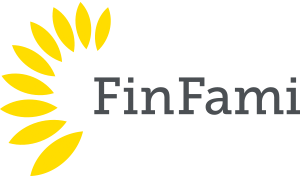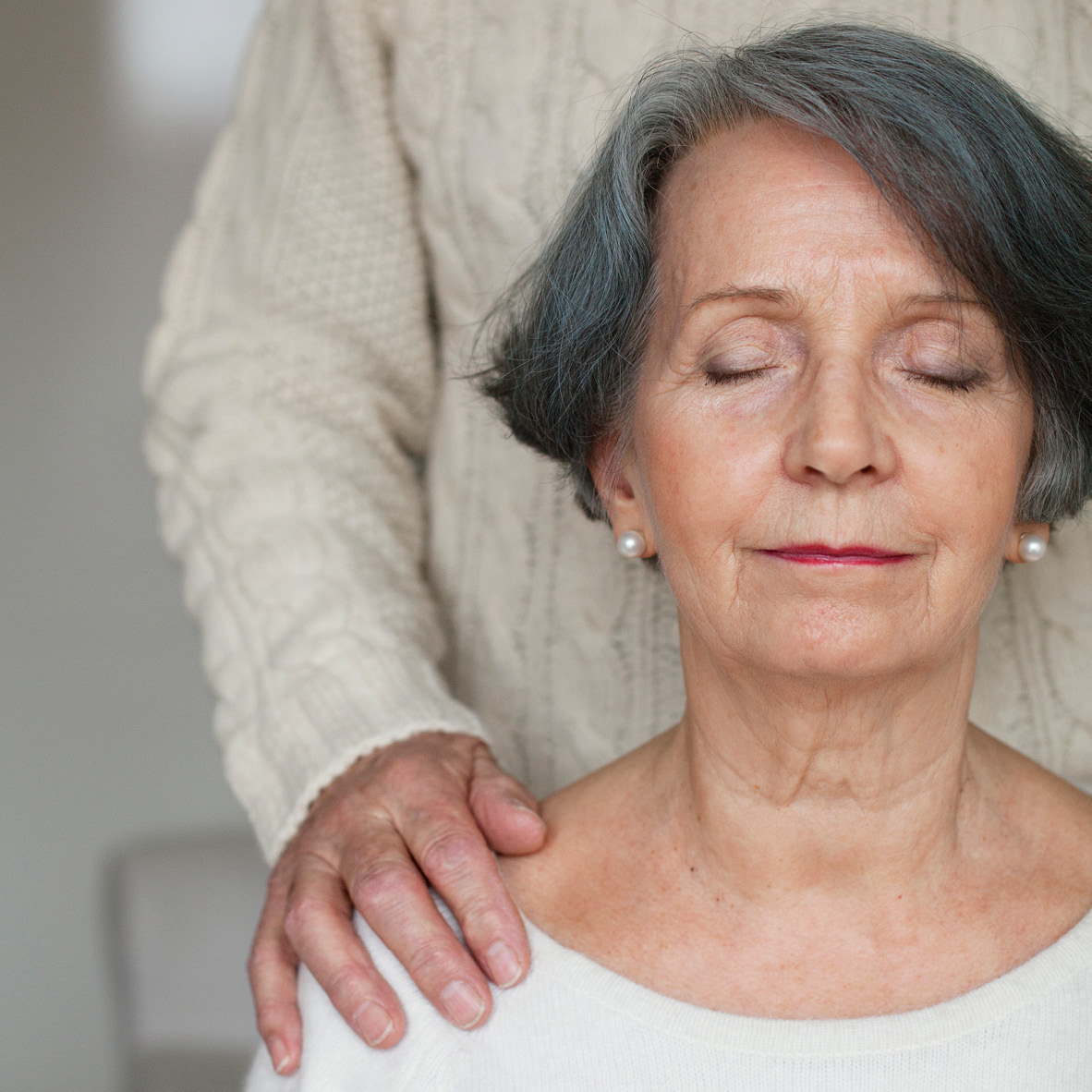A Handbook to Family members and Friends Affected by Mental illness
dear reader
This handbook provides information on mental disorders and their symptoms. It contains information on the help and support you can find when your family member or friend develops a mental disorder, or you are concerned about their mental health.
contents
1. mental disorders and symptoms
what is a mental disorder?
causes of mental disorders
How to maintain good mental health?
2. important information to family members and friends
What happens when a family member develops a mental disorder?
stages of a crisis
3. ways to help you cope better
RELIABLE INFORMATION
do not stay alone
4. Where to get help and support?
finfAMI SERVICES
1. mental disorders and symptoms
what is a mental disorder
Mental disorder is an illness of the human mind.
When a person develops a mental disorder they may act in an unusual way.
They are not feeling well, and they may be feeling continuingly down or anxious.
Examples of mental disorders are depression, bipolar disorder and schizophrenia
A person with a mental disorder has symptoms. Symptoms are signs of the illness.
Symptoms of mental disorders are for example anxiety or sense of panic.
A mental disorders can also cause physical symptoms such as headaches or stomach aches.
A person can develop mental symptoms even though they do not have a diagnosis of a mental disorder.
A diagnosis means that a medical doctor has determined the illness.
A diagnosis is not to be frightened of. For many it is relieving that the symptoms have been identified and explained. The diagnosis also helps to find the right kind of treatment for the condition.
Help and treatment is available, and recovery disorders is often possible.
Life with a mental disorder can also be rich and meaningful.
causes of mental disorders
Anyone can develop a mental disorder. Mental disorders are common and nothing to be ashamed of.
There is no single cause for a mental disorder. A person’s living environment, lifestyle and genes can all increase the risk of developing a mental disorder.
A person can fall ill due to the current circumstances in their life. Difficult relations and severe stress
can increase the risk of developing a mental disorder.
Mental disorders may be inherited genetically. If members of previous generations in the family have had mental symptoms they may appear also in younger members of the same family.
A person can also develop a mental disorder due to excessive use of alcohol or other drugs.
Often the cause of a mental disorder is a combination of factors, such as genetic inheritance and demanding circumstances in life.
Mental disorders and symptoms vary. A disorder can develop quickly or subtly.
When a person develops a mental health condition, it is good to consider the causes of the disorder and how it can be treated. Family members and friends can provide support for the person with a mental disorder. A family member’s or partner’s attitude and behaviour can make an important contribution to recovery.
How to maintain good mental health?
- Rest
- Eat well
- Exercise
- relax
- Talk to people around you
Life with a mental disorder can also be rich and meaningful.
2. important information to family members and friends
What happens when a family member develops a mental disorder?
A mental disorder affects the individual’s life as well as others around them.
When your family member, partner or a friend falls ill, it changes also your life.
A family member’s mental disorder is often a crisis for the whole family.
It is good to tell the children openly what a mental disorder is and how it affects the child’s own life.
Take into consideration the child’s age and how much they can understand.
A family member’s mental disorder can arouse many types of emotions such as sadness, worry, disappointment, guilt, anger and shame. You may also be very tired.
These are completely normal feelings in a difficult situation. Understanding that may alleviate your feeling of anxiety. It may take a long time to get used to the new situation. It may also be of help to you and others around the person with a mental disorder to learn more about the normal stages of a crisis.
There are four stages of a crisis. They may vary with different people and they may recur or continue for a variable time.
stages of a crisis
The Shock
When something sudden and traumatic happens a person is often in a state of shock.
They do not fully comprehend what has happened
They can be distraught, be very active, or completely stagnant.
Their heart rate may be fast and they may be experiencing stomach ache.
The shock phase usually lasts for a couple of days.
During this phase a person may need help even with basic life skills such as cooking or grocery shopping.
Reaction
In the reaction phase a person’s feelings and reactions are very strong
A person may not always first admit that their family member or friend is ill. They may ask themselves why their family member has developed a mental condition and feel fear, sadness or even guilt.
This stage can continue for several months. It is important that during this time they can talk to somebody about what has happened and what it feels like.
Processing stage
In the processing stage a person accepts what has happened.
They understand what it feels like and they are able to discuss it.
They get used to the idea that a family member has a mental disorder. The anxiety gradually alleviates. They can think about the future and understand how the family member’s mental disorder will affect it.
Reorientation stage
At this stage the family member’s mental disorder is a part of everyday life. The disorder has not disappeared, but the idea does not feel as bad as in the beginning.
A person understands that even though their family member is ill, life goes on. Often it brings hope and strength when you can talk to people with the same situation.
When one falls ill,
many lives change.
3. ways to help you cope better
It is understandable that you want to help your family member or friend with a mental disorder. Just remember that it is a challenging situation also to you.
Take care of your own wellbeing. You do not have to manage everything. You are not solely responsible for your family member. Be careful not to get too stressed or burdened by the situation or you might risk developing a disorder yourself.
reliable information
Even though you wish to help your family member, they may not want or appreciate your help.
Often people with mental disorders do not want to accept or understand that they are ill.
They may even get angry when you try to help.
Reliable information on mental health often helps that they start accepting help and treatment.
This information you can find at your local Finfami association, for example. More information on FinFami you can find at the end of the handbook. Find your local FinFami association at www.finfami.fi/ alueyhdistykset.
Mielenterveystalo.fi-verkkopalvelussa on tietoa psykiatrisista ongelmista ja niiden hoitamisesta. https://mieli.fi/en/mental-health/mental-disorders
do not stay alone
When a friend or family member develops a mental health condition, it’s important to know that you’re not alone. Talk to others about your situation and ask for help. Talk to other family members and friends affected by mental disorder for peer support and more information.
Advice to you
- Do not stay alone
- Look for reliable information on the condition.
- Make sure to take care of yourself and your wellbeing
- Turn to peer support, at your local FinFami association for example.
- In case you need help, you can find it at your local health centre or crisis helpline.
Take care of your own wellbeing.
4. where to get help and support
FinFami is an association that offers counselling and support to anyone affected by mental illness or concerned about a friend or family member’s mental health.
FinFami’s member associations’ professional support and counselling services are available all around Finland. Find your local FinFami association at www.finfami.fi/jasenyhdistykset
FinFami provides more information on the following topics, for example:
- mental disorders
- treatment of mental disorders
- social security
- support to people with a mental disorder and their family members and friends
finfami services
- information and counselling
- peer support
- courses
- recreation
- volunteering
- other activities
More information on the services available at your local FinFami association.
Services are free of charge, unless otherwise specified.
Find your local FinFami association at www.finfami.fi/jasenyhdistykset
Contact FinFami for advice, support and hope.
You are not alone.




